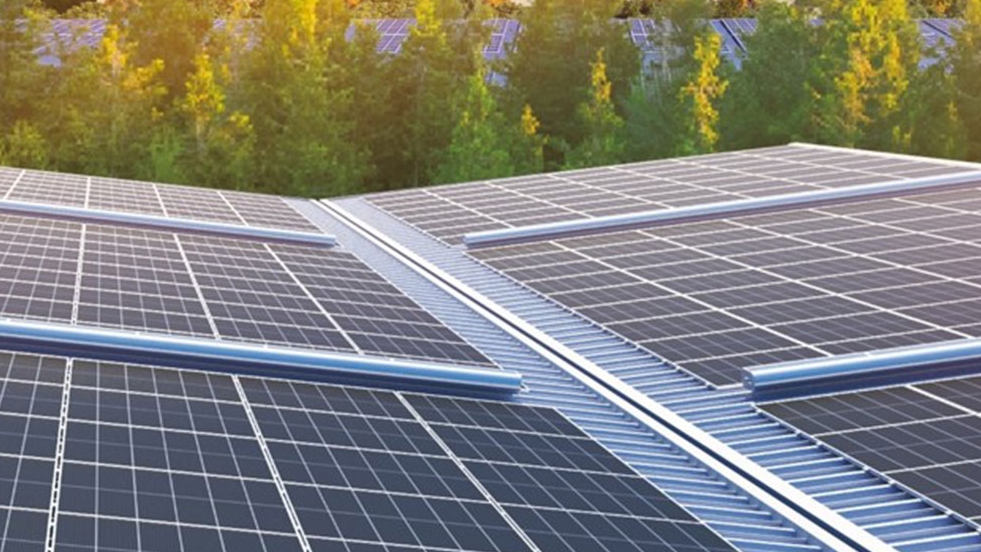如何安全使用太陽能光伏發電系統?
太陽能光伏發電作為清潔能源的代表,正逐步融入家庭、工業及公共設施領域。然而,其安全運行涉及電氣規范、設備維護及應急處理等多方面要求。以下從專業角度解析安全使用的核心要點。
As a representative of clean energy, solar photovoltaic power generation is gradually integrating into households, industries, and public facilities. However, its safe operation involves multiple requirements such as electrical specifications, equipment maintenance, and emergency response. The following is a professional analysis of the core points of safe use.
一、系統設計與安裝規范
1、 System Design and Installation Specification
選址與結構安全:
Site selection and structural safety:
光伏陣列應避開陰影區域,組件間距需滿足冬至日日照6小時無遮擋要求,防止熱斑效應引發局部過熱。
Photovoltaic arrays should avoid shaded areas, and the spacing between components should meet the requirement of unobstructed exposure for 6 hours a day during the winter solstice to prevent local overheating caused by hot spot effects.
支架基礎需進行地質勘測,混凝土澆筑深度不低于0.8米,抗風壓設計需符合當地50年一遇風速標準。
The support foundation needs to undergo geological survey, with a concrete pouring depth of not less than 0.8 meters, and the wind pressure resistance design must comply with the local wind speed standard of once in 50 years.
電氣隔離設計:
Electrical isolation design:
直流側采用雙極斷開開關,交流側配置四級斷路器,確保維修時完全切斷電源。
The DC side adopts a bipolar disconnect switch, and the AC side is equipped with a four level circuit breaker to ensure complete power cut-off during maintenance.
逆變器安裝位置應與居住區保持3米以上安全距離,散熱通道無遮擋,避免高溫引發故障。
The installation location of the inverter should maintain a safe distance of at least 3 meters from the residential area, and the heat dissipation channel should be unobstructed to avoid high temperatures causing malfunctions.
二、日常操作安全規范
2、 Daily operational safety standards
個人防護要求:
Personal protection requirements:
維護人員需穿戴絕緣手套、防電弧面罩及防滑鞋,雨天操作時額外配備絕緣靴。
Maintenance personnel are required to wear insulated gloves, arc resistant face shields, and non slip shoes, and additional insulated boots should be provided during rainy weather operations.
接觸直流導體前,需用萬用表驗證電壓低于36V,防止電擊風險。
Before touching a DC conductor, a multimeter should be used to verify that the voltage is below 36V to prevent the risk of electric shock.
運行監測要點:
Key points of operation monitoring:
每日檢查逆變器顯示屏,關注絕緣阻抗值,低于500kΩ時需立即排查接地故障。
Check the inverter display screen daily, pay attention to the insulation impedance value, and immediately troubleshoot the grounding fault when it is below 500k Ω.
安裝環境監測儀,當陣列表面溫度超過75℃時,自動啟動降溫風扇。
Install an environmental monitoring device that automatically starts the cooling fan when the surface temperature of the array exceeds 75 ℃.
三、設備維護與隱患排查
3、 Equipment maintenance and hazard investigation
清潔作業規范:
Cleaning operation specifications:
組件清洗應選擇清晨或傍晚,避免溫差過大導致玻璃爆裂。
Component cleaning should be done in the early morning or evening to avoid excessive temperature differences that may cause glass breakage.

使用軟毛刷與去離子水,禁止踩踏組件表面,防止隱裂產生。
Use a soft bristled brush and deionized water, and do not step on the surface of the components to prevent hidden cracks.
電纜檢查標準:
Cable inspection standards:
每季度檢查直流電纜外護套,發現龜裂長度超過10cm需整段更換。
Check the outer sheath of the DC cable every quarter and replace the entire section if cracks exceeding 10cm are found.
接頭處溫度監測采用紅外熱成像儀,超過環境溫度20℃時需緊固連接螺栓。
Infrared thermal imaging is used for temperature monitoring at the joint, and the connecting bolts need to be tightened when the ambient temperature exceeds 20 ℃.
四、應急處置預案
4、 Emergency response plan
火災應對措施:
Fire response measures:
陣列區域配置二氧化碳滅火器,禁止使用水基滅火劑,防止直流電弧復燃。
Install carbon dioxide fire extinguishers in the array area, and prohibit the use of water-based fire extinguishers to prevent DC arc reignition.
發生火災時,首先切斷交流側斷路器,再用絕緣工具斷開直流輸入。
When a fire occurs, first cut off the AC side circuit breaker, and then use insulated tools to disconnect the DC input.
雷擊防護方案:
Lightning protection plan:
避雷針引下線截面積不低于50mm2,接地電阻小于4Ω,每年雨季前檢測。
The cross-sectional area of the down conductor of the lightning rod shall not be less than 50mm2, and the grounding resistance shall be less than 4 Ω. It shall be tested before the rainy season every year.
浪涌保護器采用I級+II級雙重防護,動作電流誤差控制在±5kA以內。
The surge protector adopts dual protection of level I and level II, and the operating current error is controlled within ± 5kA.
五、特殊環境應對策略
5、 Special environmental response strategies
高溫環境:
High temperature environment:
逆變器艙內溫度超過45℃時,強制啟動空調系統,避免IGBT模塊過熱失效。
When the temperature inside the inverter compartment exceeds 45 ℃, the air conditioning system is forced to start to avoid IGBT module overheating and failure.
組件背板采用高反射率涂層,降低工作溫度5-8℃。
The component backplate adopts a high reflectivity coating to reduce the working temperature by 5-8 ℃.
積雪覆蓋:
Snow cover:
陣列傾角大于30°時,自然滑落積雪厚度不超過5cm,超過時需用軟質刮板清除。
When the inclination angle of the array is greater than 30 °, the natural snow thickness should not exceed 5cm. If it exceeds this, a soft scraper should be used to remove it.
陰天雪后及時清理,防止融雪水滲入接線盒引發短路。
Clean up promptly after cloudy and snowy weather to prevent snowmelt from seeping into the junction box and causing a short circuit.
六、人員培訓與制度建設
6、 Personnel training and system construction
操作資質要求:
Qualification requirements for operation:
維護人員需持低壓電工證,每兩年復審,掌握直流系統操作規范。
Maintenance personnel need to hold a low-voltage electrician certificate, undergo a review every two years, and master the operating specifications of the DC system.
定期開展電弧閃絡事故應急演練,熟悉燒傷急救與心肺復蘇流程。
Regularly conduct emergency drills for arc flashover accidents and familiarize oneself with burn first aid and cardiopulmonary resuscitation procedures.
檔案管理規范:
Archive Management Standards:
建立設備履歷表,記錄安裝日期、維修記錄及部件更換信息。
Establish an equipment history sheet to record installation dates, maintenance records, and component replacement information.
保存五年內發電數據,用于故障趨勢分析與壽命預測。
Save power generation data within five years for fault trend analysis and life prediction.
太陽能光伏發電系統的安全運行需要貫穿設計、安裝、運維全生命周期。通過嚴格執行電氣隔離規范、建立隱患排查機制、制定應急預案并強化人員培訓,可顯著降低事故風險,使系統故障率低于0.5次/年。隨著智能監測技術的發展,光伏電站正逐步實現從被動維護到主動預防的轉變,為清潔能源安全利用提供更強保障。
The safe operation of solar photovoltaic power generation systems requires a full lifecycle of design, installation, and operation and maintenance. By strictly implementing electrical isolation standards, establishing hidden danger investigation mechanisms, developing emergency plans, and strengthening personnel training, the risk of accidents can be significantly reduced, resulting in a system failure rate of less than 0.5 times per year. With the development of intelligent monitoring technology, photovoltaic power plants are gradually transitioning from passive maintenance to active prevention, providing stronger guarantees for the safe utilization of clean energy.
本文由太陽能光伏發電情奉獻.更多有關的知識請點擊:http://m.51dwgw.cn我們將會對您提出的疑問進行詳細的解答,歡迎您登錄網站留言.
This article is a friendly contribution from distributed photovoltaic power generation For more information, please click: http://m.51dwgw.cn We will provide detailed answers to your questions. You are welcome to log in to our website and leave a message
新聞推薦
product recommendation聯系方式
Contact Information

 TEL:0531-82390078
TEL:0531-82390078 TEL:18805312017
TEL:18805312017 MAI:sdzdny001@163.com
MAI:sdzdny001@163.com 公司地址: 濟南市歷下區山大路157號
公司地址: 濟南市歷下區山大路157號 天合藍天·山東種電
天合藍天·山東種電 備案號:魯ICP備17052940號-2
魯公網安備37010202700164號
備案號:魯ICP備17052940號-2
魯公網安備37010202700164號
 網站地圖|XML|TXT
網站地圖|XML|TXT

掃一掃方便咨詢我們

截屏,微信識別二維碼
微信號:18805312017